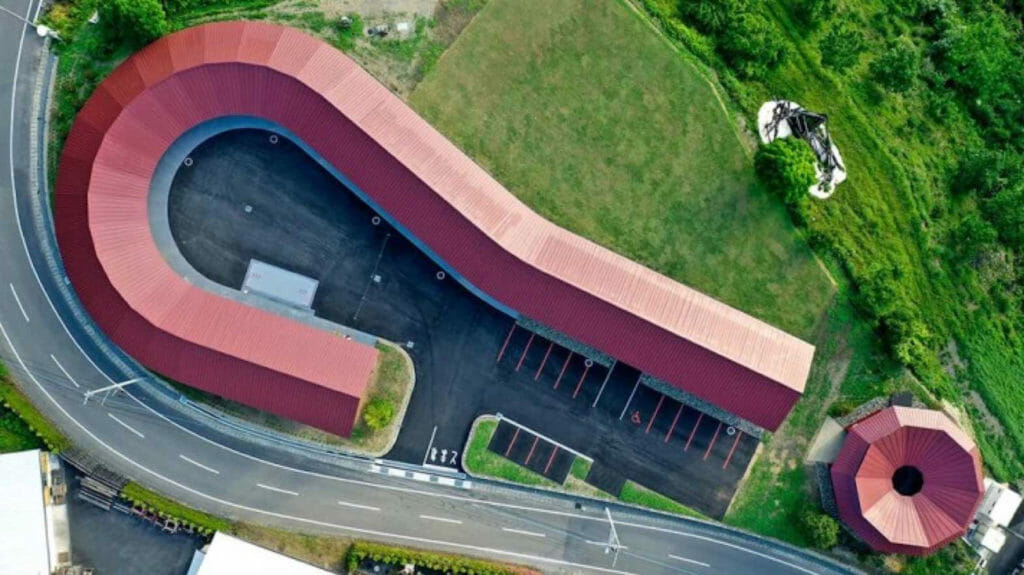KAMIKATSU, Japan—We’re surrounded by a sea of green, a welcome balm for the urban eye and mind. Standing outside the WHY Hotel in the tiny town of Kamikatsu (population 1,500), deep in the mountains of Japan’s Shikoku region, we breathe in the cool air and take in how thickly forested the surrounding mountains are. Climate change? Global warming? These dystopian scenarios seem remote, given the sylvan display. At the same time I can’t help but think of the deforestation that plagues the once-densely forested Philippines, of the destruction of vast swaths of the Amazon rainforests in Brazil.
And there are the other disturbing signs of a planet unravelling: glaciers melting, sea levels rising, coral reefs bleached lifeless, a million species threatened with extinction, record-breaking heat waves, ever more intense storms. In 2003, the Kamikatsu townspeople, recognizing the existential threat we humans face, was the first municipality in Japan to aim for zero waste. Which meant eliminating landfill and incinerated waste by 2020.
Indeed, two years ago, the municipality opened a waste-recycling facility, the Zero Waste Center, along with the oval-shaped Why Hotel. The hotel’s design serves as the end dot of the question mark, i.e., ?, the facility was built to resemble. The wood used for the construction was locally sourced, and more than 500 windows were recycled and fitted throughout the center and in the hotel.

(Image: transit-web.com)
In addition to the recycling area, the Center has the Kuro Kuro Shop, where visitors can buy second-hand clothes, crockery, and household items the residents no longer need or want; a multipurpose hall that can serve as a lounge, a meeting place for the community, a space for children to play in, a kitchen; and a laboratory.
Following the 3Rs—reduce, reuse, and recycle—, and with no trash collection service, the townspeople themselves take their household trash to the center, where they then separate it into more than 45 different categories. In the two days that we stayed at the Why Hotel, we saw residents drive up, park, and put their trash into the proper bins.
In the mornings, we too brought over to the recycling area the trash we had accumulated. There, Ms. Momona Otsuka, manager of the hotel as well as of the center, pointed out which trash went into which bins. Doing so forced us to consider our consumption habits, how ingrained these are and the ways in which they generate trash. Clearly, the less we act as consumers the less trash, or waste, we generate. Waste Not, Want not. And implied therein is an anti-capitalist critique.
In an earlier interview, Otsuka explained that “[I]t is not just the 3Rs that are paramount to achieving zero waste: we must also consider the fourth R, which stands for ‘responsibility.’ Businesses need to produce and manufacture with the idea of disposal in mind, and consumers need to choose products that can be recycled and reused as resources in the end. That is the key to society’s future.” With its zero-waste policy, Kamikatsu has also stressed the importance of environmental education for the younger generation. For it is incumbent on the latter to respond to the challenges brought about by our environmental crises. In this regard, Kamikatsu is a pioneer in preparing the way for the country’s desired circular economy.
Through their community-driven policies, the residents have gained a keen awareness of the need to reduce waste completely. Thus, the town now recycles more than 80% of their overall waste. The challenge is to further reduce the 20% leftover waste. One way is through what is termed “thermal recycling”: what normally would be labeled “combustibles” are sold to factories as fuel for their industrial operations. The recycling does enable the town to earn some money though the sums generated aren’t sufficient to cover the cost of maintaining the Center, with the town covering the shortfall.
Kamikatsu is not only aligned with the Japanese government’s pledge to reduce carbon emissions to net-zero by 2050, but ahead of it. By displaying its intent to tackle environmental issues head on, with subsequent media attention, and with younger people drawn to the alternative lifestyle and pristine environment the town offers, Kamikatsu has become a model of how to meet the urgent need of achieving an environmentally sustainable society.
One item that I noticed is overused in the country, as indeed elsewhere, is plastic. While packaging is often an art here, on the other hand, the recourse to plastic wrapping seems disproportionately massive. (To be continued)
Copyright @ L.H. Francia 2022

